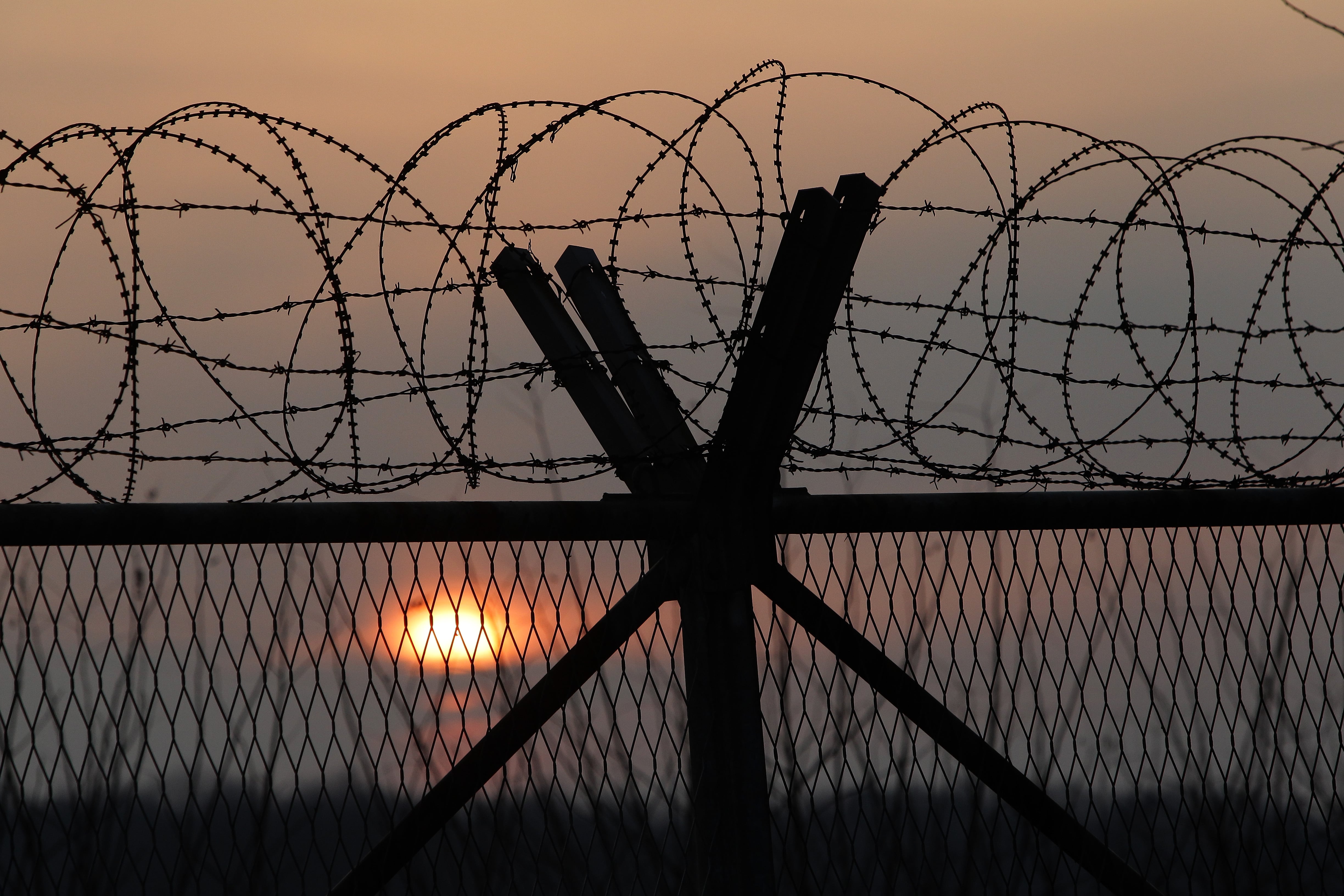WASHINGTON — The Pentagon and State Department remained careful Jan. 7Thursday when discussing whether strategic assets or missile defense systems could be moved closer to South Korea, but would not rule out anything when discussing U.S. actions in response to Tuesday’s North Korean nuclear test.
Pentagon press secretary Peter Cook told reporters that the relationship between the US and the Republic of Korea remains "iron-clad," a phrase he used four times when discussing the US willingness to protect its longstanding ally.
He also said the U.S. would "consider every possible option that should be considered to further the defense of South Korea."
However, just how far the U.S. is willing to go is unclear.
Media reports Thursday cited a South Korean official as saying Seoul has requested the United States deploy strategic assets to the peninsula. Unsurprisingly, both Cook and State Department spokesman John Kirby were reluctant to address that directly.
"I'm not going to get into a list of options on the table, but this is something that is an ongoing discussion that we have on a regular basis already with the South Koreans," Cook said. "In light of recent events, [the U.S.] has only stepped up the contact that we're having with the South Koreans and the communication we're having to make sure that they are assured, other allies in the region are assured that everything is being done to ensure the sanctity of the alliance and our commitment to South Korea moving forward."
Kirby said he was not aware of any such request, noting it would go through military channels initially.
"It's not just about being there, it's about being ready and they are ready. And of course, there are other assets in the Asia-Pacific region elsewhere that we could draw upon if needed," Kirby noted.
Unsaid by Kirby is that even non-regional strategic assets can be quickly deployed if needed. In March 2013, an American B-2 stealth bomber flew from Whiteman Air Force Base in Missouri over South Korea and back in what officials at the time publicly said was a show of force to Pyongyang.
Another potential option would be to position Terminal High Altitude Area Defense (THAAD) systems on the Korean peninsula itself, something that has been discussed before. As with the strategic option, Cook did not rule it out as something that could occur in the future.
"We have not had formal consultations on the THAAD system with the Republic of Korea; no decisions have been made on a potential deployment of the THAAD to the Korean peninsula," Cook said, before noting "this is part of a larger discussion that we'll continue to have with South Koreans about capabilities and about the alliance moving forward, but there's been no formal discussions about THAAD deployment."
Historically, the U.S. has chosen the path of non-military options – in part because the specter of combat on the Korean peninsula would result in massive loss of life and property not just for both Korean nations, but their Pacific partners as well. While the Pacific is known for its distances, Seoul rests less than 50 miles from the DMZ, Tokyo is just 800 miles from Pyongyang and China shares a border with the DPRK.
The goal appears to once again use economic and political factors to defuse a North Korean fueled crisis.
Asked about potential sanctions on North Korea, Kirby said, "The United States has in many cases unilateral sanctions and I'm certainly not going to rule anything in or not at this point. … I think that you can safely assume that US decision makers are considering a wide range of potential options here and I won't speculate about what they will be."
Notably, Secretary of State John Kerry told reporters at the State Department that he had discussed the issue with Chinese Foreign Minister Wang Yi, and the two sides agree that "there cannot be business as usual" following the DPRK's weapons test.
While there are signs that relations between North Korea and China have frayed since Kim Jong Un's ascension to the North Korean leadership, China has historically been the patron and protector of the Kim family. If Beijing is willing to work with Washington on a solution, Kerry indicated, it would be welcome help.
"On the first trip that I made to China, when I raised the issue of the climate negotiation that resulted in China joining with us, I spent most of that trip and most of that time on North Korea," Kerry said.
"Now China had a particular approach that it wanted to make and we agreed and respected to give them the space to be able to implement that, but today in my conversation with the Chinese I made it very clear, that has not worked and we cannot continue business as usual," he added.
Whatever actions the Obama administration takes, it may need to make them quickly to stay ahead of Congress.
On Capitol Hill, US House Majority Leader Kevin McCarthy and the House Foreign Affairs Committee Chairman Ed Royce rapped the Obama administration's response to the test as "weak and inadequate" in a joint statement Thursday.
They pledged the lower chamber would take up a bill that would restrict, if enacted, North Korea's access to hard currency and take other measures to block and seize assets related to nuclear proliferation, illicit activities, and human rights violations "that are the hallmark of the Kim regime."
Joe Gould in Washington contributed to this report
Email: amehta@defensenews.com
Twitter: @AaronMehta
Aaron Mehta was deputy editor and senior Pentagon correspondent for Defense News, covering policy, strategy and acquisition at the highest levels of the Defense Department and its international partners.








